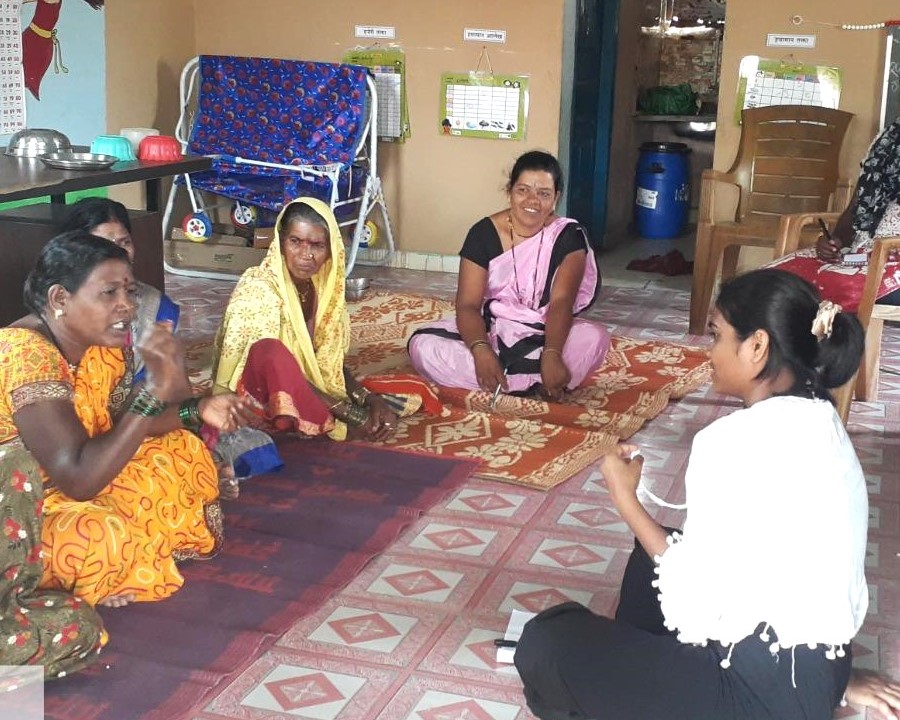One Problem, Many Perspectives
One Problem, Many Perspectives: What Our Research Fellows Learned About Dynamics of Women Power and Water Realities
Water is a basic need, but in rural Maharashtra, it remains a daily struggle. For many, especially in tribal belts like Jawhar, Mokhada, and Vikramgad, water isn’t just about thirst. It defines how people eat, work, travel, and dream. During their field immersion, Raah Foundation’s research fellows Shruti, Ritika and Snehal set out to understand this dynamics. What they found was far more complex, and far more inspiring at the same time.
An accepted struggle, but a growing shift
In many villages, women of older generations have internalized the water crisis. For them, walking miles to the nearest well, waiting hours, or rationing every drop is simply life. But things are changing.
A younger generation, some of whom have completed basic education, is beginning to challenge this inherited hardship. They are no longer silent participants in Gram Sabha meetings. They’re raising their hands, asking questions, demanding answers. This shift, our fellows observed, is subtle but powerful.


Rooted in Responsible Research
The fellows approached this work through a lens of ethical and responsible research. Using tools like Focus Group Discussions (FGDs), structured interviews, and community mapping, they ensured that diverse voices, especially those of women and marginalized groups, were meaningfully included.
Sampling was done thoughtfully across villages and age groups to capture overlaps in lived experiences and generational shifts. Quantitative and qualitative data were triangulated for depth and accuracy. Consent and
confidentiality was strictly maintained, and findings were validated with Raah for transparency. Snehal inspiringly mentioned, “This wasn’t just research, it was deep listening in action and understanding”.
Water Is Not Just a Resource
During their time in the field, our research fellows could clearly trace the quiet but steady impact of Raah Foundation’s long-term engagement in these communities. Years of work on water security measures, women-led climate-resilient agriculture had laid the groundwork for visible change.
Women who once remained on the fringes of public decision-making were now confidently leading water user groups, voicing their needs in Gram Sabha meetings, and influencing how resources were allocated. What stood out the most was slow but steady shift in self-belief, a transformation Raah had helped seed and nurture through its consistent, community-rooted presence”.

A Reflection
What began as a field study on water turned into a lesson in leadership. Our research fellows returned not just with data, but with deep respect for the everyday courage of women who refused to let scarcity define their destiny.
They reminded us that behind every water drop is a story of effort, and often, a woman who made it happen.
This isn’t just water security, but quiet power of women amongst the wordy chaos.

